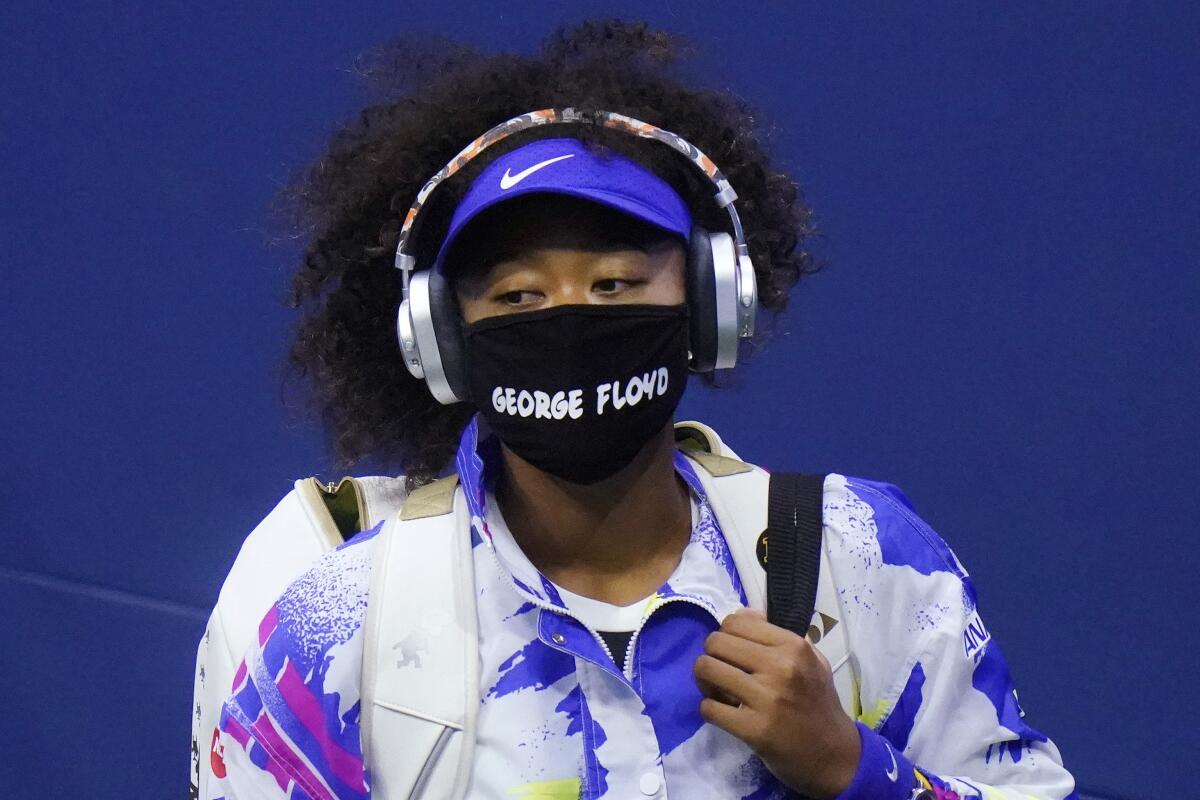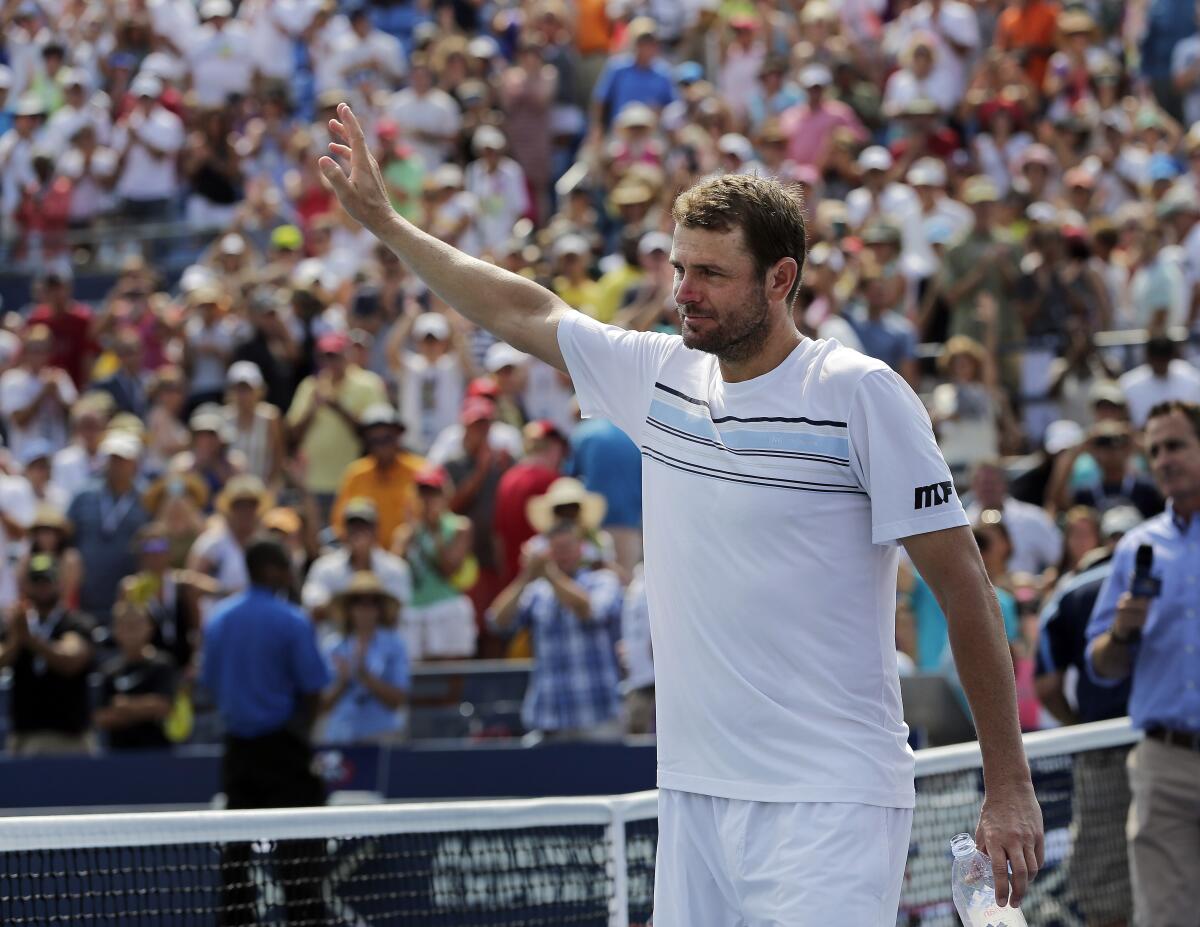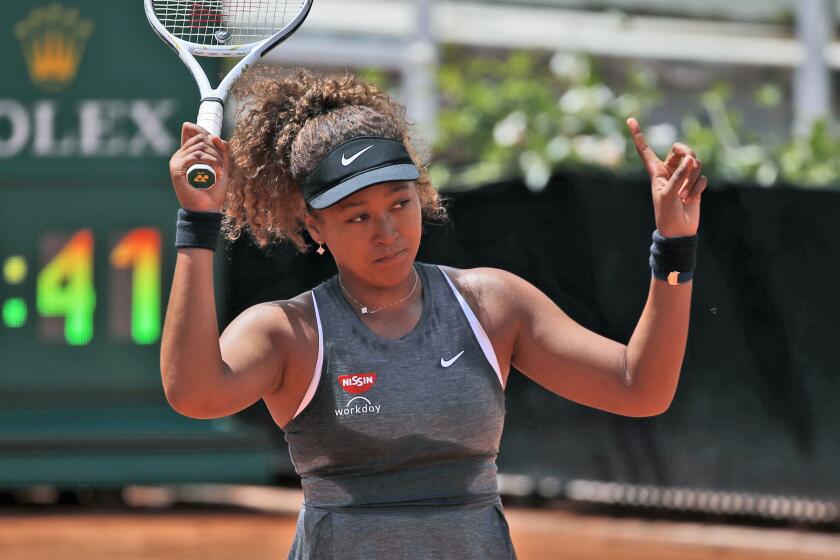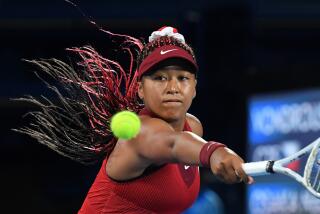Mardy Fish offers support to Naomi Osaka. He’s been on his own mental health journey

- Share via
Tennis star Naomi Osaka is a four-time Grand Slam champion at age 23. She also suffers from depression and anxiety.
On Monday, Osaka withdrew from the French Open and announced she was stepping away from the sport for an undisclosed amount of time, a decision she said she made in part for her own mental health.
Retired tennis player Mardy Fish was one of the many people who publicly offered support for Osaka. “Mental Health is nothing to criticize. Nothing to joke about,” he tweeted. “Pls take your mental health seriously.”
Fish knows because he’s been there.
Around 10 years ago, Fish went from enjoying what he described as a “nice” tennis career to becoming one of the sport’s elite players. But just as he was reaching the pinnacle of success, Fish started experiencing anxiety attacks that became more frequent and more intense as time went on.
As former Times sports editor and columnist Bill Dwyre wrote in 2015: “The joy was that he got himself up to No. 7 in the world in 2011. The pain was that that climb caused him to lose the joy.”
Finally, Fish couldn’t continue.
In a 2015 piece for the Player’s Tribune, Fish recalled having multiple anxiety attacks in the car on his way to a 2012 U.S. Open match against Roger Federer, which Fish called “the biggest tennis match of my life.”
Naomi Osaka revealing her struggles with depression and anxiety shows why her decision to withdraw from the French Open deserves understanding.
He wrote: “I am hours away from playing the greatest player of all time, for a chance at my best-ever result, in my favorite tournament in the world. I am hours away from playing the match that you work for, that you sacrifice for, for an entire career.
“And I can’t do it.
“I literally can’t do it.”
So he didn’t.

He continued: “And just like that, it hit me — I remember it so vividly, and so powerfully. Oh God, I thought. I’m … not going to do it. I’m not going to go out there, anxious, in front of 22,000 people. I’m not going to play Roger.
“I’m not going to play.
“I didn’t play.”
Fish defaulted to Federer and didn’t play much competitive tennis for the next several years. He returned to the U.S. Open in 2015, losing in the second round before retiring on his own terms and advocating for mental health along the way.
Athletes, actors and other prominent figures fiercely defend Naomi Osaka on social media after the tennis star withdrew from the French Open.
“Mental health is not a very easy thing to talk about in sports,” he wrote in the Player’s Tribune. “It’s not perceived as very masculine. We’re so trained to be ‘mentally tough,’ in sports. To show weakness, we’re told, in so many words, is to deserve shame.
“But I am here to show weakness. And I am not ashamed.”
Osaka essentially made the same statement Monday. And the outpouring of support she’s received from the sports world shows such issues may not be as taboo as they once were.
More to Read
Go beyond the scoreboard
Get the latest on L.A.'s teams in the daily Sports Report newsletter.
You may occasionally receive promotional content from the Los Angeles Times.












